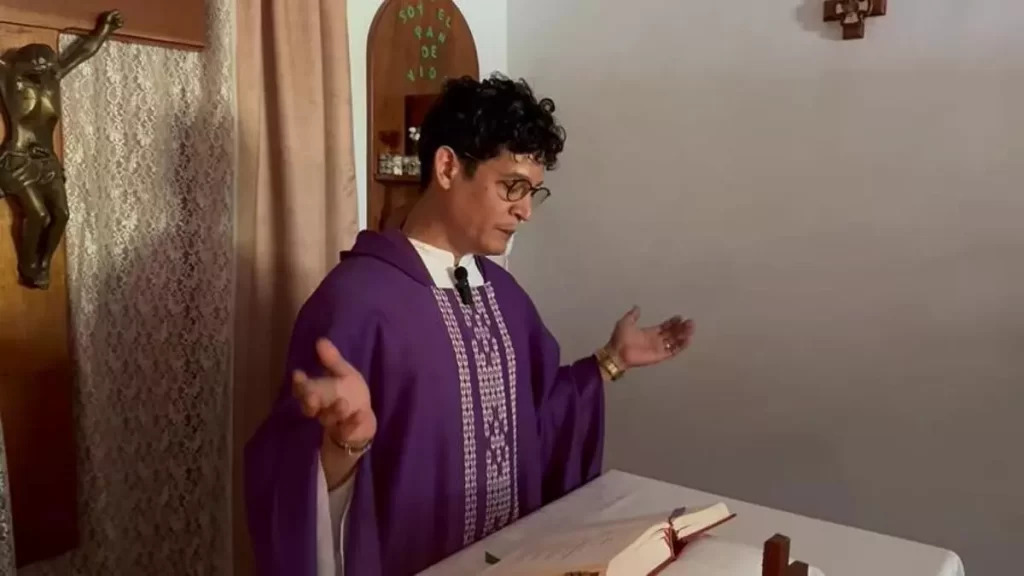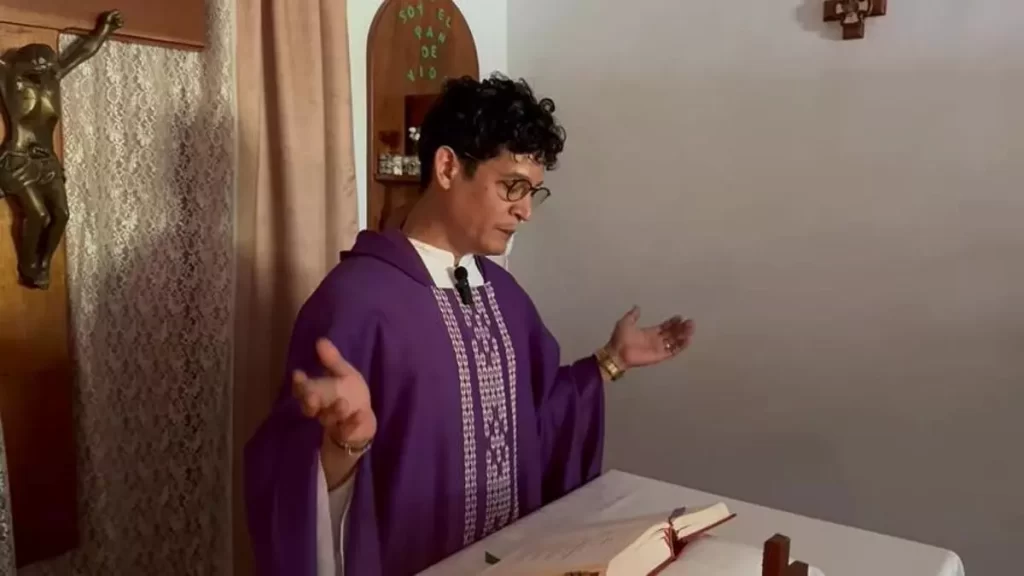To many mothers “God seems deaf” because they don’t see a way out and they become desperate

14ymedio, Havana, 16 June 2024 — Leandro Naun, a Catholic priest, ministers to a handful of rural communities in Santiago de Cuba. With the end of the month fast approaching, word is spreading that delivery of the basic monthly allotment of rationed goods is delayed. Some here worry it may never arrive. No matter. Fr. Naun hops into a gray Toyota and drives off at full speed to distribute spaghetti, flour and sugarcane juice. He has a course on how to bake bread with few limited resources, oversees a squad of children who make jam, and recommends May rainwater as a remedy for bellyaches.
No one knows where he gets the energy. The money comes from former parishioners who now live overseas but who still help out. Few priests have provided such thorough accounts of what life is like in the mountains of Santiago. The videos he posts online show real, journalistic skill, not unlike that of a war correspondent. He watches, records and reflects. If it were up to him, he says, he would have spent all this time in a clearing in the Darién jungle, giving encouragement to the Cubans making their way through the undergrowth to reach the North.
Naun was born in Cobre, a mining town that is home to the shrine of Our Lady of Charity. It is an odd mix, a place where Catholicism and Afro-Cuban beliefs converge. In spite of all the tourists and pilgrims making their way to the shrine of the country’s patron saint, it remains one of the poorest places in Cuba.
“Violence will continue to increase, and in direct proportion to the frustration, powerlessness and discontent the public is experiencing”
Naun still lives in the eastern mountains, where he grew up. He is concerned about the direction the country is headed, both the entire island and the area where he lives. He describes a recent tense situation in which he encountered a burglar, a “poor man,” in his orchard. “It left me cold, petrified,” he says. “He told me,’You’re well-off and I’m not.’ He thought that, because I was in a better situation than him, he had the right to rob me. Others will say,’You travel by car while I have to travel on foot!’ But I’m not responsible for their situation!”
The key, he says, is in understanding Cubans’ “repressed helplessness.” In some cases, frustration is expressed through violence. It can be seen in people’s expressions, in the stern looks on their faces. Violence can erupt even among neighbors and family members. One does not have to go far to find examples. Exactly one year ago, three masked men broke into his parents’ house on the outskirts of Santiago. During their getaway, they beat his mother and attacked his father with a machete.
“My father survived the attack but it almost cost him his life,” recalls Naun, who warns that violence will continue to increase, and in direct proportion to the frustration, powerlessness and discontent the public is experiencing.
“Pubic morale is at rock bottom,” he


